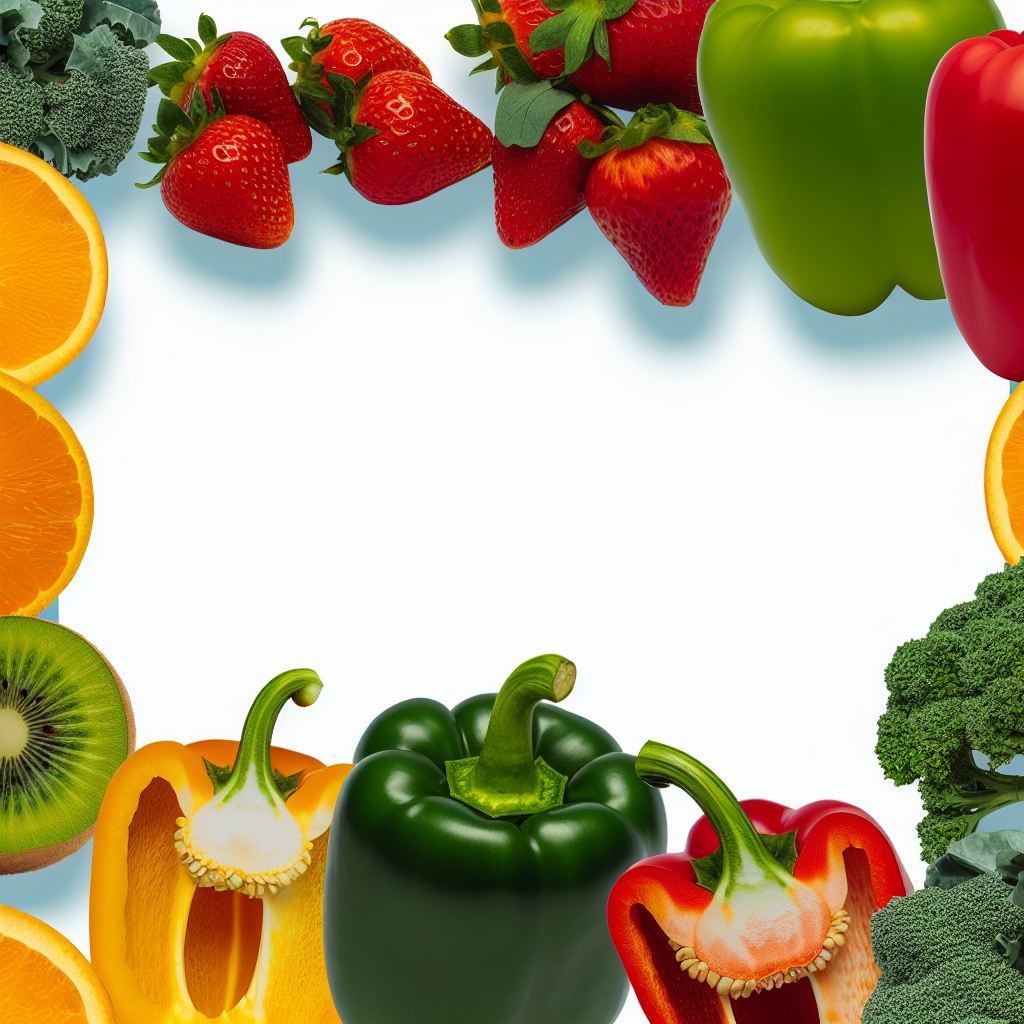Vitamin C, or ascorbic acid, is an antioxidant known to help fight the common cold and may prevent cancer and heart disease. It also helps the body absorb iron.
Getting enough of this water-soluble nutrient is easy with a well-rounded diet. Registered dietitian Devon Peart offers tips for optimal dietary intake and maximising the benefits of vitamin C.
Fruit Power
When it comes to incorporating vitamin C into a balanced diet, fruits and vegetables are the best options. Although many people associate this nutrient with oranges, a variety of foods provide significant amounts.
For example, a cup of chopped strawberries provides 113 percent of the daily recommended intake for this nutrient, while a mango smoothie contains 70 percent. A simple swap can make a big difference in your vitamin C intake without adding too much sugar to your drink.
Since the body doesn't store vitamin C, people need to source it through food on a regular basis. Registered dietitian Devon Peart, RD, shares more info about healthy sources of vitamin C and tasty ways to incorporate them into your meals. Vitamin C is important for the immune system, helps form and maintain connective tissue and is a powerful antioxidant. It also supports the absorption of iron in the body.
Natural Sources
The best vitamin C sources are fruits and vegetables, such as citrus fruit, green and red peppers, kiwifruit, strawberries, tomatoes and potatoes. The body cannot make vitamin C, also known as ascorbic acid or L-ascorbic acid, so it is important to get enough of it each day from a variety of foods. Because the water-soluble vitamin dissolves in water and any excess leaves the body in urine, eating a wide variety of vitamin C-rich foods each day will help ensure that you meet your daily requirements.
Besides being a powerful immune system booster and disease fighter, vitamin C helps form and maintain connective tissue, like skin and bones, and acts as an antioxidant, protecting cells from damage. While most animals can synthesize this nutrient, apes, humans and other primates, some fish and most rodents must obtain vitamin C from their diets. Getting enough of the nutrient each day is essential to prevent and treat diseases such as scurvy, which can be caused by a deficiency in vitamin C.
Health Guide
Vitamin C is an essential nutrient your body can’t make on its own. It plays many roles, including helping form and maintain connective tissues like skin and bone, and acting as a powerful antioxidant that protects cells from damage caused by illness and environmental factors such as pollutants and ultraviolet light.
It was only recently that scientists fully understood the importance of this nutrient. The discovery was made in part because sailors in the 1700s and 1800s were falling ill and dying of a disease called scurvy, which was caused by a lack of vitamin C from foods they consumed at sea.
Now, we know that consuming lots of fruits and vegetables rich in this vitamin is the best way to get enough. Registered dietitian Devon Peart shares more info about the role of vitamin C in the diet (including the health benefits of getting plenty), plus expert advice and practical tips for integrating more of this nutrient into your meals. And Everyday Health staff nutritionist Kelly Kennedy offers an easy, healthy recipe for gluten-free, dairy-free lemon bars.
